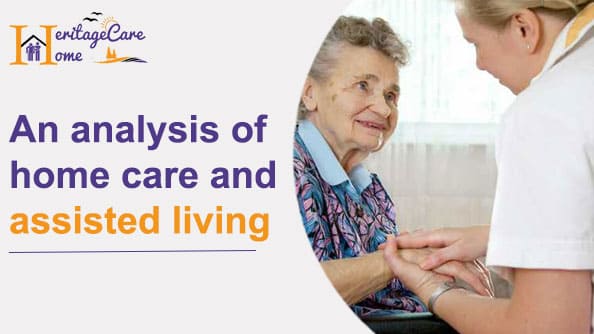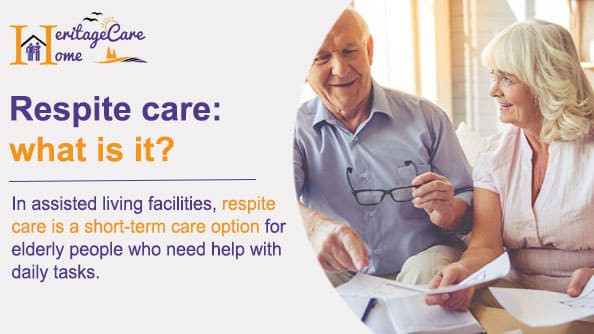
It might be stressful to research the many senior housing alternatives for yourself or an elderly loved one. You want to respect your family's preferences for staying at home or moving into a senior living facility while also making the best decision for your or your loved one's health and happiness. Both senior housing options offer advantages and disadvantages that should be taken into account. To help you make the best decision for you and your family, we'll help you understand your options while deciding between assisted living and non-medical home care for seniors in this post.
Non-Medical Home Care: What Is It?
When you employ non-medical home care, a home care assistant will visit you or a loved one's home and remain there, either continuously or according to a set schedule. This individual, sometimes known as a home aide or elder care companion, may assist with everyday activities and offer the company.
Skilled home health care versus non-medical care
It's crucial to understand the distinction between home health care and non-medical care. Nearly anybody may provide non-medical treatment, even without a medical license. Actually, the responsibility frequently falls on a family member who is not compensated for these activities.
Home health experts, on the other hand, are qualified medical specialists who may frequently give prescriptions, provide occupational therapy services, change wound dressings, and evaluate general health.
Home health care is something to think about if you or a loved one has health issues or if you're concerned about getting around the house safely. Unfortunately, both medical and non-medical home care for elders may be costly. The expenses can easily reach thousands of dollars per month, especially if 24-hour care is required.
Assisted Living: What Is It?
Staff in an assisted living facility are on duty around-the-clock to offer non-medical care services. When it's essential, she or he provides care and company for you or a senior loved one.
Additionally, social activities like movie nights and group yoga sessions are frequently offered in assisted living facilities to keep residents interested in life. Many also provide transportation, nutritious eating alternatives, and wellness programs. If you choose non-medical in-home care, you will be responsible for covering these costs separately.
Assisted living or non-medical home care?
Non-medical home care is frequently seen as a better, more cost-effective alternative to assisted living by caregivers and seniors. Even worse, they might think that non-medical home care gives senior citizens more freedom. In-home care might be the best choice for an elderly person who wants to remain in their own home. Here are some significant variations between the two to take into account:
Comparison of Assisted Living and Home Care
|
|
Assisted Living |
Home Care |
| What types of care are provided? |
Residents of assisted living facilities may still be able to live independently despite requiring some assistance with tasks like dressing and personal care, housekeeping, managing their medications, and transportation. |
Care may include:
- Bathing and personal hygiene
- Reminders to take medications, despite the fact that they are generally prohibited in most states.
- Getting dressed
- Help to eat
|
| What other services are offered? |
To keep residents interested in life, residents receive three nourishing meals each day, as well as access to social programs and life-enriching activities like yoga classes and movie nights. |
Services may include:
- Light housekeeping
- Cooking
- Transportation
- Companionship
|
| What is the living situation like? |
Residents of assisted living communities typically have their own rooms or suites with private baths and kitchenettes, and the communities are designed to feel like homes. |
With home care, you can age comfortably in your own home, but making home modifications may be necessary to maintain independence. |
| How much does it cost? |
According to the most recent Cost of Care Survey, the average monthly cost of assisted living in the US is about $4,300. |
The average monthly salary for a home health aide will be $5,148. |
Another key benefit of assisted living is that you receive care from a group of people rather than just one person. There are a few substitute choices available if your home health aide calls in sick or has to care for someone else. Your loved one will always receive the care they require if they live in an assisted living facility.
Aside from being covered for major expenditures like rent and meals, assisted living communities also provide a wide range of activities and intimate friendships with other senior citizens that are not possible with home care.
It's crucial to keep the following in mind when examining all elements, including costs:
- When a senior employs non-medical home care, they are still responsible for covering all of their regular costs, including meals, rent or mortgage, taxes, and utilities.
- In addition to a place to live, certain meals, transportation, house maintenance (including lawn care), and utilities, assisted living also offers non-medical care.
- Assisted living offers assistance whenever you or a loved one needs it, 24 hours a day.
Stay or Leave?
It might be challenging to decide whether to age in place with home care assistance or move into assisted living. Visit your nearby Heritage Care Home Senior Living facility to see if the environment, services, and amenities are a good fit for you.








